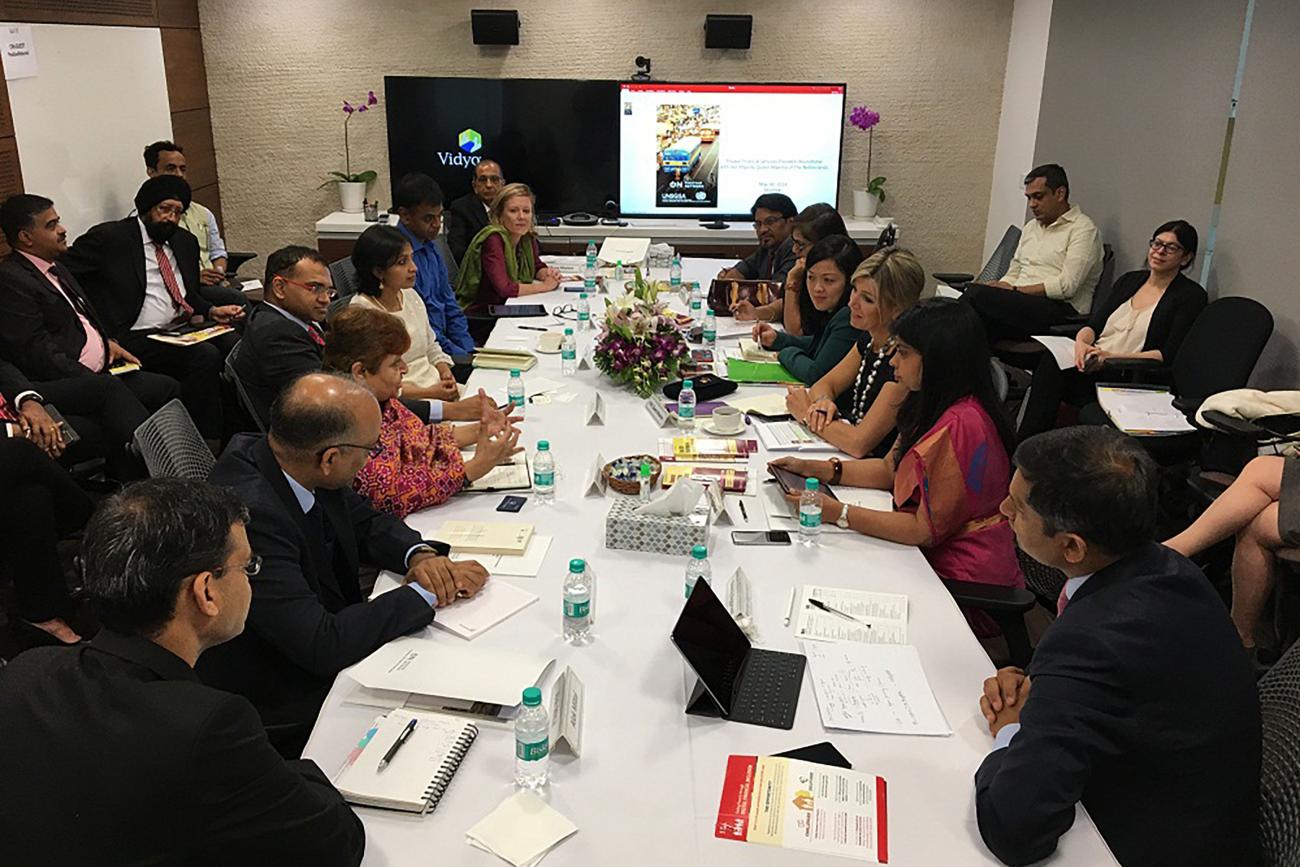
Queen Máxima. Photo credit: Frank van Beek
At a special launch event in Dar es Salaam, the UNSGSA congratulated President Jakaya Mrisho Kikwete, Vice-President Mohamed Gharib Bilal and central bank Governor Benno Ndulu for their leadership and vision for a more inclusive financial sector in Tanzania. This is helping to drive the country’s economic growth and development goals. Stakeholders from diverse government ministries including agriculture and finance, as well as private sector and civil society joined the launch, and are involved in the new National Financial Inclusion Council. These and many more stakeholders will play an important role in the implementation of the National Financial Inclusion Framework in the coming years.
In the Framework’s first phase to 2016, Tanzania’s Council and related committees will focus on tackling fundamental barriers of high costs, far distances, and asymmetries of information. Queen Máxima noted that this systems-wide approach will open new opportunities for service providers. Digital platforms, financial infrastructure and consumer protection advancements will be important to the achievement of Tanzania’s goal of reaching 50 percent of the population with formal financial services by 2016. The Framework also recognizes the importance of financial services for small-holder farmers and agri-business – the backbone of Tanzania’s economy and the sector that the majority of Tanzanians rely upon for their livelihoods.
The Framework will be implemented by three levels of committees made up of members from government ministries and the private sector, with the Bank of Tanzania serving as the coordinating body and secretariat. In her keynote address, the UNSGSA also noted the importance of the Framework’s monitoring mechanism make sure that policies, investments and actions are having the desired impact.
The National Financial Inclusion Framework is aligned with the country’s overall economic development blueprint, and contributes to Tanzania’s various international commitments under the G20 Financial Inclusion Peer Learning Program (to create a national financial inclusion strategy) and the Alliance for Financial Inclusion’s (AFI) Maya Declaration (to include 50% of the population in the formal financial sector by 2015).